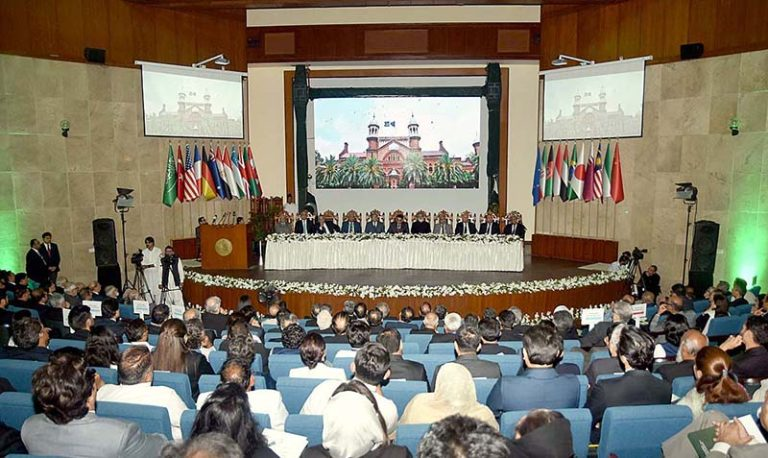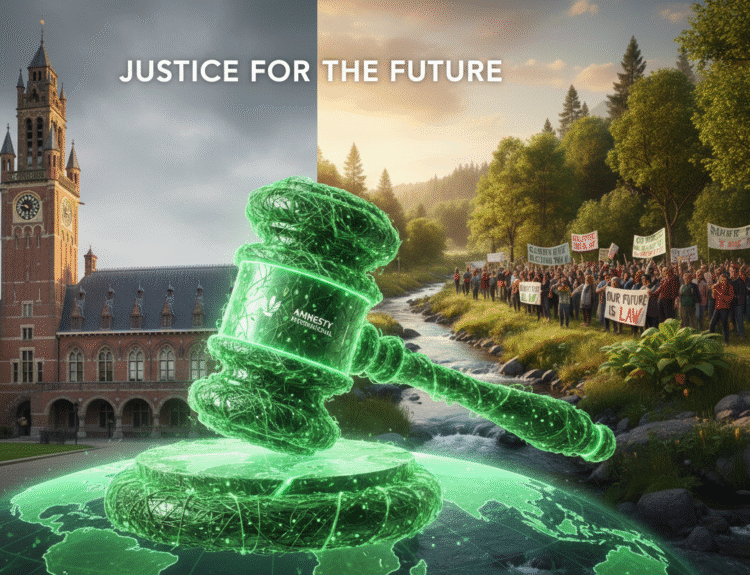Dispelling any role of judiciary in political arena on Friday the top court’s Chief Justice Umar Ata Bandial underscored the dire need of political parties dialogue to address the prevailing political impasse in the country through democratic practices under the aegis of Constitution of Pakistan.
It is pertinent to mention that currently all walks of life facing unprecedent inflation amid governance issues due to tussle of center and Punjab province leadership. It is violation of right to life which has been enshrined in Article 9 of the Constitution of Pakistan. In this situation, immediate intervention of worthy head of the State is sought who may convene a meeting of top parliamentary, top judicial, top executive leadership including military and intelligence agencies for deliberation to end this tug of war over governance issue.
Chief Justice of Pakistan (CJP) Justice Bandial expressed while inaugurating a two-day 9th International Judicial Conference that Law and Justice Commission of Pakistan (LJCP) has organized under the auspices of National Judicial (Policy Making) Committee (NJPMC) from 23 to 24 September 2022 at the Supreme Court of Pakistan.
Addressing the first session of the Conference the CJP said a purely political impasse does not have legal solutions. It can only be resolved through dialogue between the political leaders and their parties. He further expressed the judiciary has no role to break a political deadlock, he noted and said that as with other citizens, the judiciary sincerely hoped that the political leadership of the country shall take necessary corrective action and confidence-building measures with public and national interest as their foremost consideration.
Currently all walks of life facing unprecedent inflation amid governance issues due to tussle of center and Punjab province leadership. It is violation of right to life which has been enshrined in Article 9 of the Constitution of Pakistan. In this situation, immediate intervention of worthy head of the State is sought who may convene a meeting of top parliamentary, top judicial, top executive leadership including military and intelligence agencies for deliberation to end this tug of war over governance issue.
The CJP added it is a shared belief in the judicial community that if we are to truly progress as a nation, which is fully committed to the ideals and aspirations of the Constitution and the rule of law, then all the stakeholders in the justice sector need to rise to the challenge.
“The judiciary cannot pursue these ideals singlehandedly. The other organs of the state, namely, the legislature and the executive must also adhere to constitutional principles and ensure that their actions advance, rather than negate, the ideals and aspirations of the Constitution.”
“Additionally, the executive must also be diligent in implementing the decisions of the court, especially in matters of constitutional importance, without undue delay to truly anchor the Rule of Law in the country,” he added.
The CJP explained that the court has the power to declare the rights guaranteed to the people by the Constitution and the law but it cannot implement the same, except in limited circumstances. Therefore, he continued, it is the executive which must take charge in this field and ensure that the words of the court are translated into practical action for the people.
“The bar is also expected to join hands in delivering justice where it is most lacking by making the courts or other fora of dispute resolution accessible to people who cannot access these due to reasons of poverty, marginalisation and illiteracy,” CJP Bandial observed.
He deplored the culture of “filing frivolous cases”, saying it must also be curtailed so that genuine grievances of the people are addressed. “Where the filing of such cases is observed, costs should be imposed on litigants to ensure an efficient and effective functioning of the court system”, he added. The CJP also said that at present our criminal legal system has a low conviction rate due to poor investigations and a heightened focus on procedural technicalities.
“Therefore, to bring a balance between the rights of the accused and the victim it is the court’s duty to re-examine the principles of criminal law and recommend changes where necessary to ensure a society free of crime and disorder.
The CJP also pointed out that unfortunately, the court’s effort in cases of mismanaged state assets was less productive for a lack of judicial expertise as well as legal content in that field. “Having learnt from experience, the court now exercises judicial restraint in matters involving economic decisions unless there is a violation of the relevant regulatory laws that leads to wastage of public assets causing a loss to the public exchequer and consequently the people.”
In this regard, the court’s notice in Suo Motu Action Regarding Maintaining of Foreign Currency Accounts (PLD 2018 SC 686) made the government aware of the lacunas in the laws which allowed the unregulated outflow of foreign exchange from Pakistan thereby encouraging the government to make appropriate amendments. These were indeed introduced in the Income Tax Ordinance, 2001 in the Tax Year 2018.
‘Judiciary Cannot Afford Polarisation’, CJ IHC Justice Athar Minallah:
Meanwhile, Islamabad High Court Chief Justice Athar Minallah in his address said that the judiciary could not afford to be polarized, as we have no ideology or loyalty other than to the law and the Constitution.
“We can disagree with one another and such disagreements form the part of the judgment we render and the dissents that come along with the judgments. Such disagreement must always be rooted in our understanding of the law and not personal likes and dislikes. We have sworn an oath to shun personal likes and dislikes in the discharge of our duties. And in this regard, I, as the chief justice of Islamabad High Court, am grateful for the collegiality that we have in our small court.”
Justice Minallah also stressed that as an institution we cannot be oblivious to the fact that history’s judgment of our performance thus far might not be flattering.
“We have contrived concepts such as ‘holding the Constitution in abeyance’ and justified the ‘doctrine of necessity’. We authored cases such as Dosso, Nusrat Bhutto, Zafar Ali Shah and Tikka Iqbal Muhammad Khan, while having sworn to protect and defend the Constitution.
“We, as an institution, sided with usurpers that were all-powerful. And decided against them only mostly when they had fallen out of favour or had walked into the sunset. We sent an elected prime minster to the gallows and it is ironic that we don’t accept the judgment as a precedent.”
“The disqualifications of chosen representatives under Article 62(1)(f) of the Constitution has raised questions. Such a high standard of scrutiny has never been applied in case of unelected usurpers and other public office holders”, the IHC CJ said.
The IHC CJ has been reported saying, “Today, speaking plainly, we are a very polarized polity. This places a special burden on the judiciary, which is the ultimate arbiter of the law and the Constitution in disputes between citizens, or between the citizens and the state, or amongst state institutions. We must conduct ourselves in a manner that does not bring our moral legitimacy, sociological legitimacy or legal legitimacy into question, as we are the ultimate dispute-resolution mechanism in the state.”
He said that the judiciary cannot refuse to adjudicate legal aspects of disputes that produce political consequences. “These are the cases wherein the legal analysis is not difficult, but the political consequences of correct judicial decisions can be far-reaching. The courts around the world tend to get influenced by the consideration of political consequences their decisions will produce. We must remind ourselves that political consequences of judicial decisions are an extraneous consideration that we have sworn in our oaths not to bear in mind,” he said.
“There is no shame in admitting that we are an unelected and unrepresentative institution. This is so by design. It is to ensure that our interpretation of the law and the Constitution is not influenced by the transient emotion of the day. Irrespective of who we decide for and who we decided against, in a case that produces political consequences a large section of the society will be critical of us. This is the burden that comes with the work we do.”
“We cannot shun this burden. But what we can be confident of is that if we abide by our oaths and exhibit fidelity to the law and the Constitution, the reasoning of our judgments will sustain our moral, sociological and legal legitimacy as an institution in the medium to long-term”, the IHC CJ concluded.





